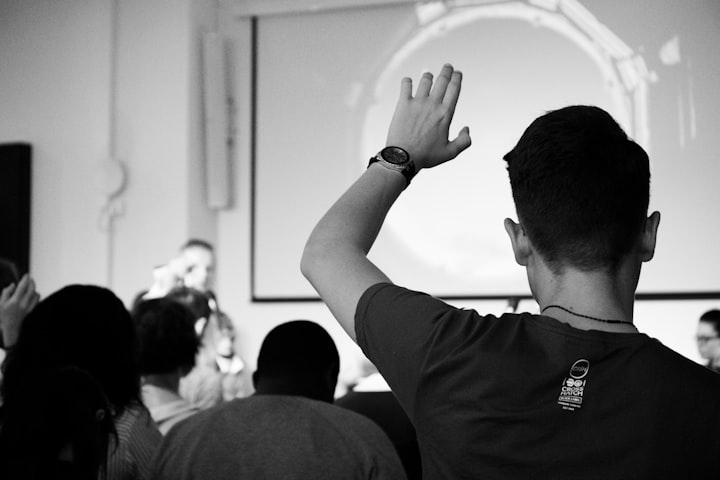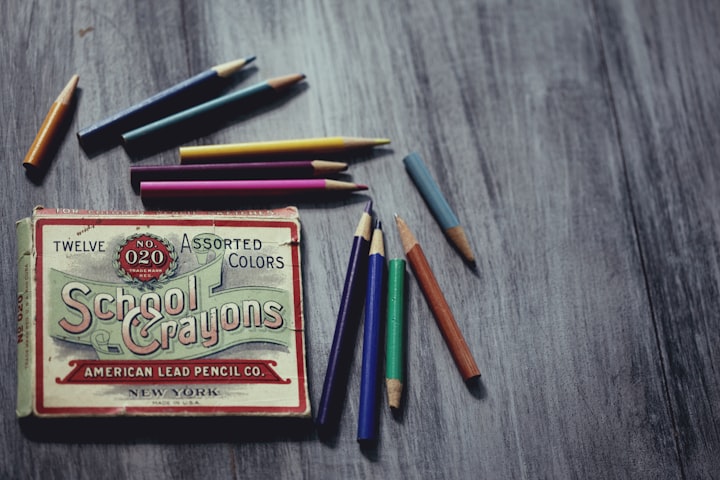Tough Questions
Who's Got the Answers?

As a parent, there is an unspoken understanding that you will be answering questions from your child for years.
I mean that's what I'm assuming, I don't actually have kids.
I applaud those educators who teach all day and then go home to their own kids; it truly blows my mind. Couldn't be me.
As a teacher, there is always an expectation of students asking questions; questions are actively encouraged, as they are one of the best pathways to learning. Our training suggests that if the teacher is the one doing most of the questioning, then you're doing something wrong.
Some questions are silly; if you were an animal, what would you be? (An otter, by the way.)
Some make you roll your eyes; I asked what the main idea was and a kid raised his hand to ask to go the bathroom. Another kid asked how many minutes until lunch.
But the questions that really sick with me are the ones that are hard to answer.
My second year of teaching, someone was elected that threw my Brown students' lives into chaos, the fears of their parents rubbing off onto their children and being brought to school, if the students even came to school at all the next day. The question that they asked me was the first time that I was rendered speechless by a student's question.
"Ms. Ross. Is he going to deport us?"
It took everything within me not to cry that day. While nothing ended up happening to my students or their families, I couldn't wrap my head around the fact that my 5th graders were living with the fear that they could be sent away any day. Unless you've lived through something like that, there's no way to truly understand what they are feeling.
I may be a Black woman, but I know that there is still an element of privilege in my life. Despite the things that I've been through, I never had to worry if I was going to come home one day and find out that my parents had been deported. I never had to be a parent who was afraid to come to school functions because I was afraid I would be arrested and sent away. My parents weren't immigrants, and they didn't have to make the difficult decision to leave everything that they knew to try and make a better life for their kids. I know that there is a lot of debate around this issue, but my only focus is the kids that I serve. And that day, they were scared.
I don't remember exactly what I said, but I know that I did my best to comfort them in that moment and explain that nothing was going to happen on that day in November.
I didn't think that I would ever have a question that shook me as much as that.
I was wrong.
Hello, pandemic.
The questions became harder because I literally didn't know the answers. "When are we going back to school? When are things going to be back to normal? Why are we online for so long every day?"
"Ms. Ross, why did the cops kill that guy? George?"
Teachers exist in a strange state. We are there to educate students, to present them with facts and teach them how to view them objectively and make their own decisions, form their own opinions. We have to pretend to be completely objective, to have no opinions on things of consequence. So when things like this happen, we're in the tough position of trying to figure out how to present the facts without bias.
The mental acrobatics were real. Explain the facts of what happened. Be aware of how traumatic this event was, especially for our more sensitive students. Be careful not to bias the students against police; they still need to respect them and trust them. But since my students are Black and Brown, they also need to be aware of the disparity in how we have been historically treated by law enforcement as a whole, and how you never know if you're being confronted by a "good cop" or a "bad cop." Explain why people are protesting and what they hope to accomplish. Distinguish between protesting and rioting.
Did I mention that this question came before 9:30 in the morning? I still had a whole day of teaching ahead of me, and I was exhausted.
Now imagine several months later. January 7th, to be exact.
"Are they going to come to our neighborhood? I'm scared to go outside!"
I was shattered.
We live in America. My fifth graders shouldn't be worried about rioters storming their neighborhoods because they see what is happening at the capitol building, literally thirty minutes from their homes. They shouldn't be worried about their parents, some of whom work in the capital. Their biggest concern should be how many hours until school is over so that they can talk to their friends or play video games or watch tv. But apparently, that can't be the case any more.
I told them we'd discuss it during our support time in the afternoon. That was the toughest afternoon of questions that I've ever had with students. They wanted to know why. Why the people were there. Why no one tried to stop them. Why weren't people being arrested. Why did they choose this day. I had to assure them that they were going to be okay. I shared my relief with the students whose parents had made it home safely from the capital despite everything. I fielded questions about why those rioters had been allowed to run rampant but the protesters during the summer had been subject to violence. It got to the point when I had to remind them that I don't have all of the answers.
After school that day, I lay on my bed staring up at the ceiling, tears in my eyes. No one trains you on how to deal with these situations. Honestly, no one probably knew that we needed to be trained. It's another one of those things that you have to figure out as you encounter it, as are many of the aspects of teaching.
I've never been shy about tossing out the lesson plan when it came to educating my students and talking about real issues that they faced. My principal once walked in on me passionately explaining why wearing bandanas with gang colors could go horribly wrong; he listened for a few minutes, nodded, and walked out, leaving me to continue my class. I've always believed that students need to be shown what the world really is like so that they can get the tools that they need to succeed; especially for my Black and Brown babies. We know that the world isn't set up for them to succeed, so we have to build them up before the world can tear them down.
The rough part for me comes when I don't have answers for them because I have those tough questions myself; who answers the teacher's tough questions?
About the Creator
Janis Ross
Janis is a fiction author and teacher trying to navigate the world around her through writing. She is currently working on her latest novel while trying to get her last one published.







Comments (1)
it’s okay to not have answers ❤️ learning never ends and letting your students see you in a vulnerable state is so powerful